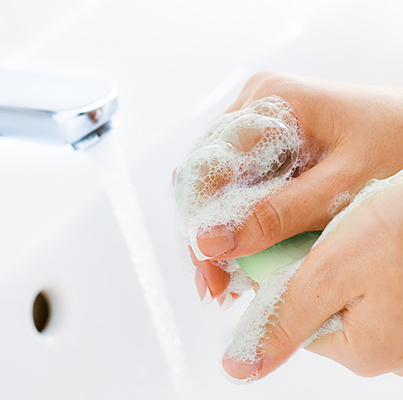Handwashing: An Essential Part of Your Personal Hygiene
Handwashing is essential, now more than ever. Our hands are the primary transmitters of infectious diseases, and yet relatively few of us wash our hands regularly.
In a Flash
Every time you touch an infected object, clothing or person, bacteria and viruses spread quickly to you. Even worse if you touch your face, especially your eyes, nostrils and mouth. Did you know that most people touch their face every 2 to 5 minutes? In addition, if you cough, droplets from the airways can travel up to 2 metres.
Even if they are invisible to the naked eye, these intruders can contaminate you and sometimes make your life difficult. The solution: washing your hands regularly.
The Science Behind the Soap
Soap is made of long molecules and when they end up in water, they gather into small clumps of fat called micelles. These micelles resemble the fatty envelope of viruses.
When soap is lathered, the ends of the molecules connect to the fatty envelope of the viruses and dissolve it, making the virus inactive and unable to infect other cells. The head of the micelle, on the other hand, envelops the microorganisms and breaks the chemical bonds that allow them to cling to the skin. They are then eliminated during rinsing.
Washing with soap and water is more effective than ethanol disinfectant gels against dirt and viruses. They should only be used when soap and water are not available.
Skin Health
Frequent handwashing is not exactly healthy for your skin. The skin is covered with a hydrolipidic film that protects it. This film is removed when washing and restores itself afterwards. However, the use of a milder, oil-filled soap and moisturizer is highly recommended. Hands that are well washed but have become chapped do not offer any protection for your health.
The Technique
- Take off your rings.
- Wet your hands and lather soap.
- Rub your hands, between your fingers, your nails for 15 to 30 seconds.
- Rinse thoroughly.
- Dry your hands. Wet hands contain up to 1000 times more germs than dry hands.





